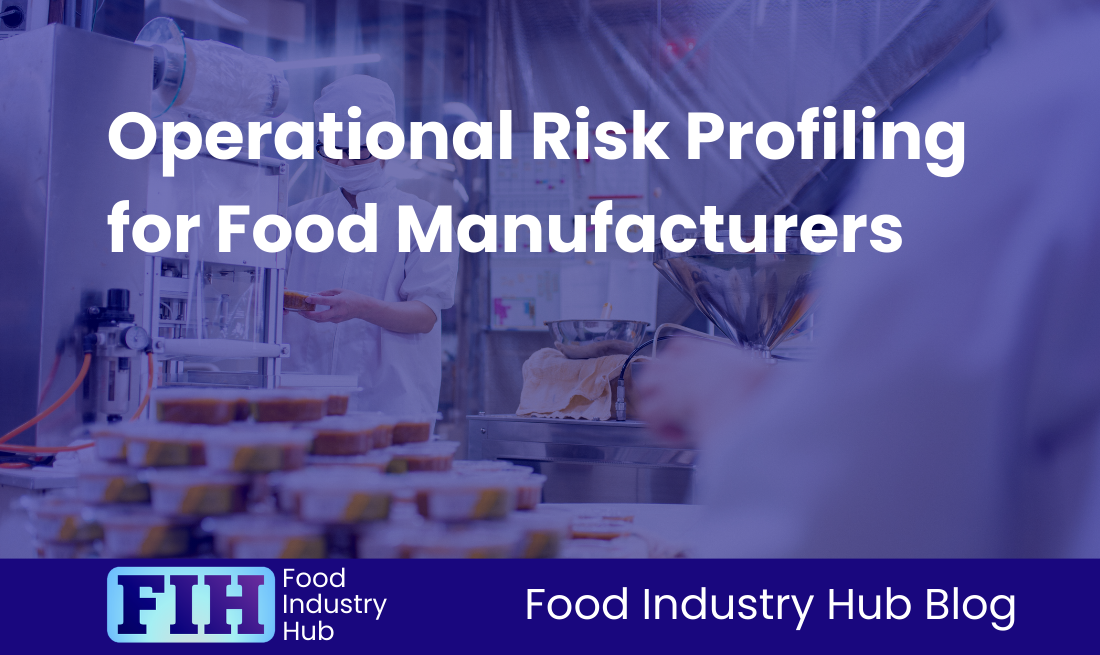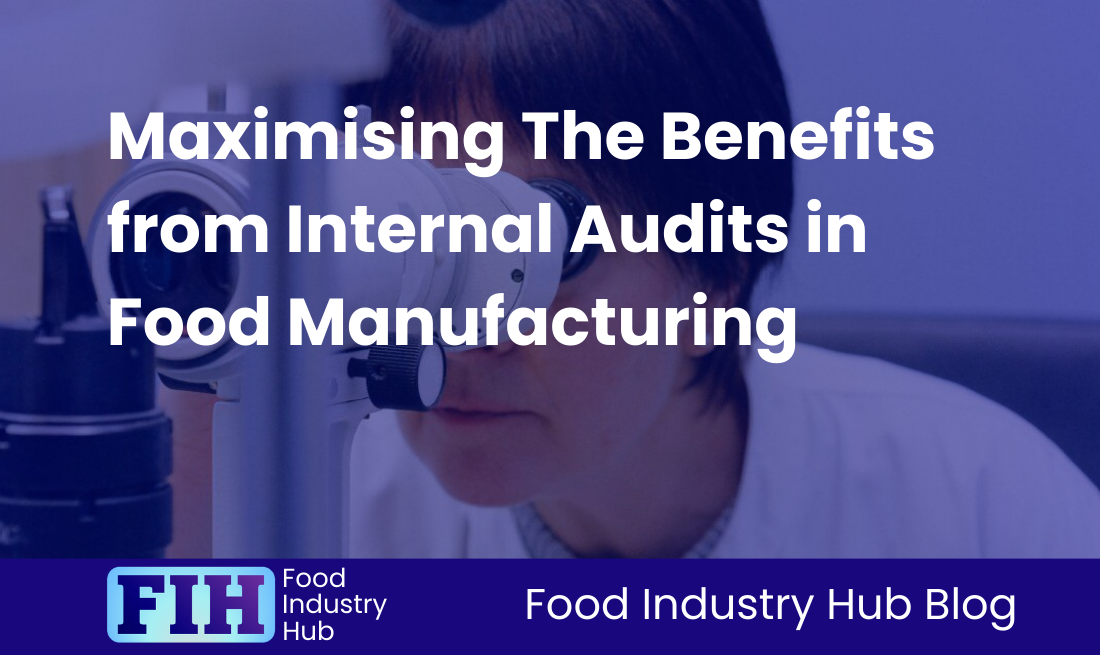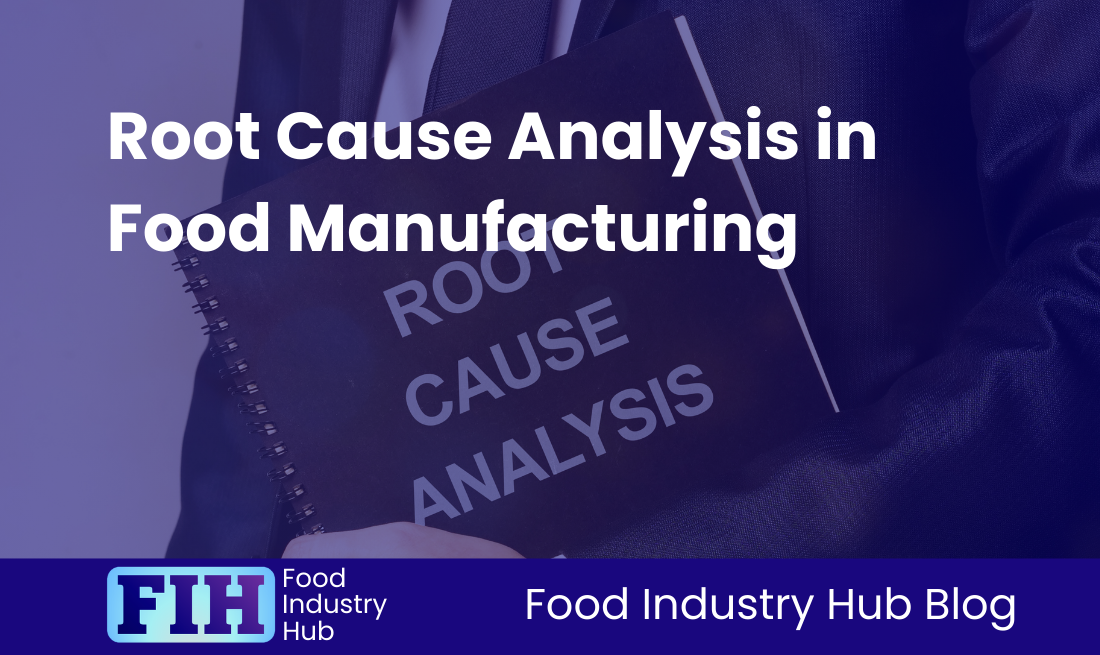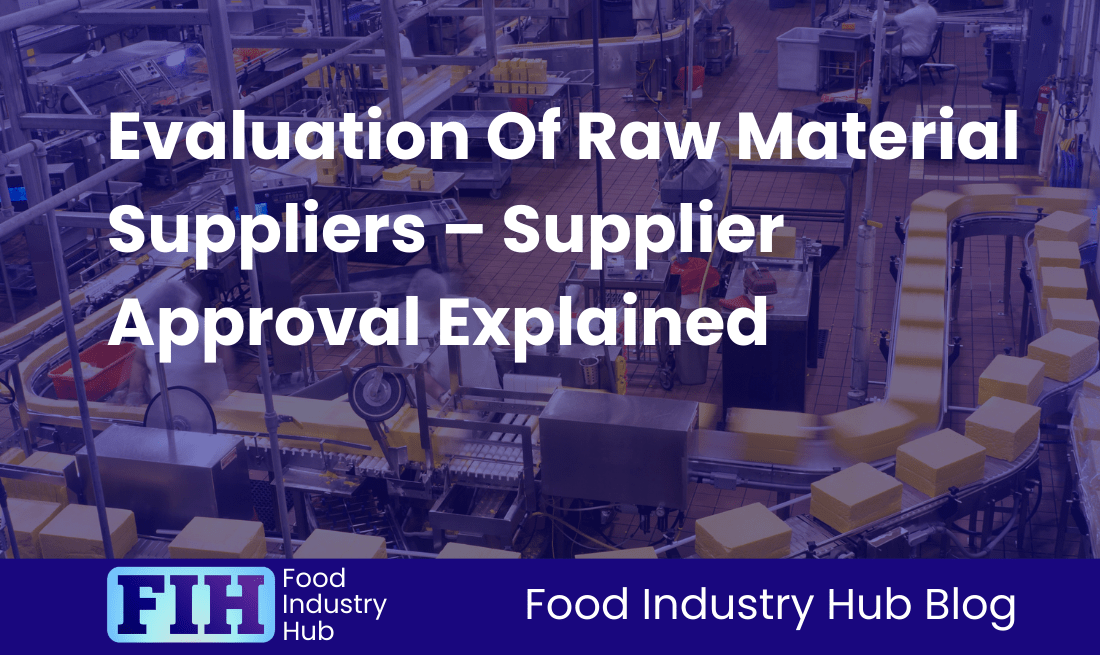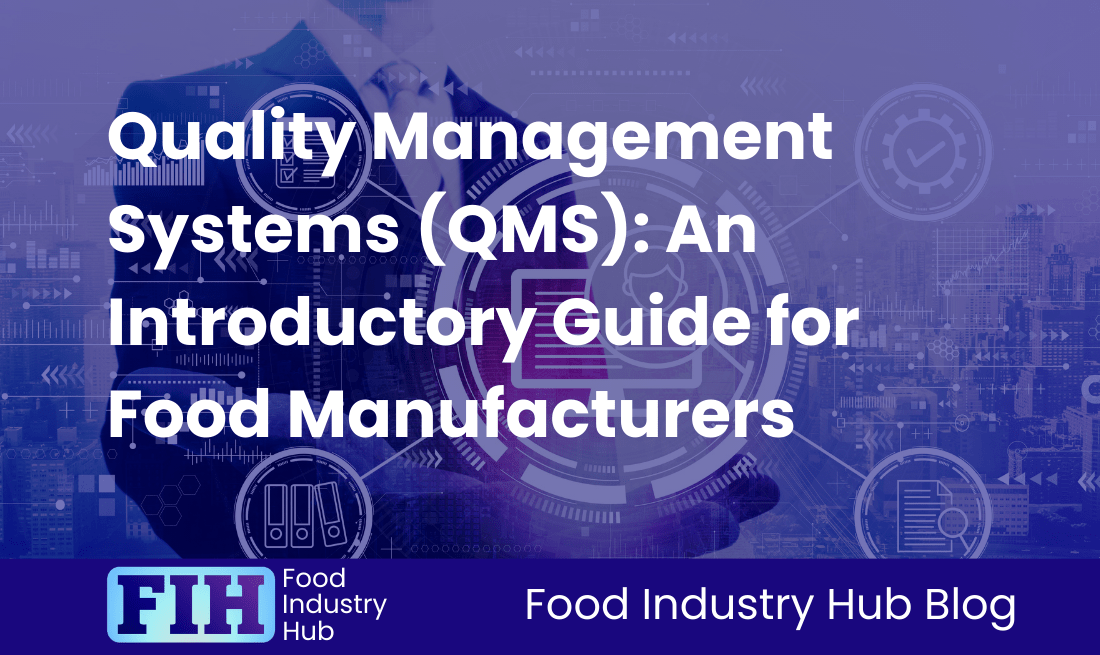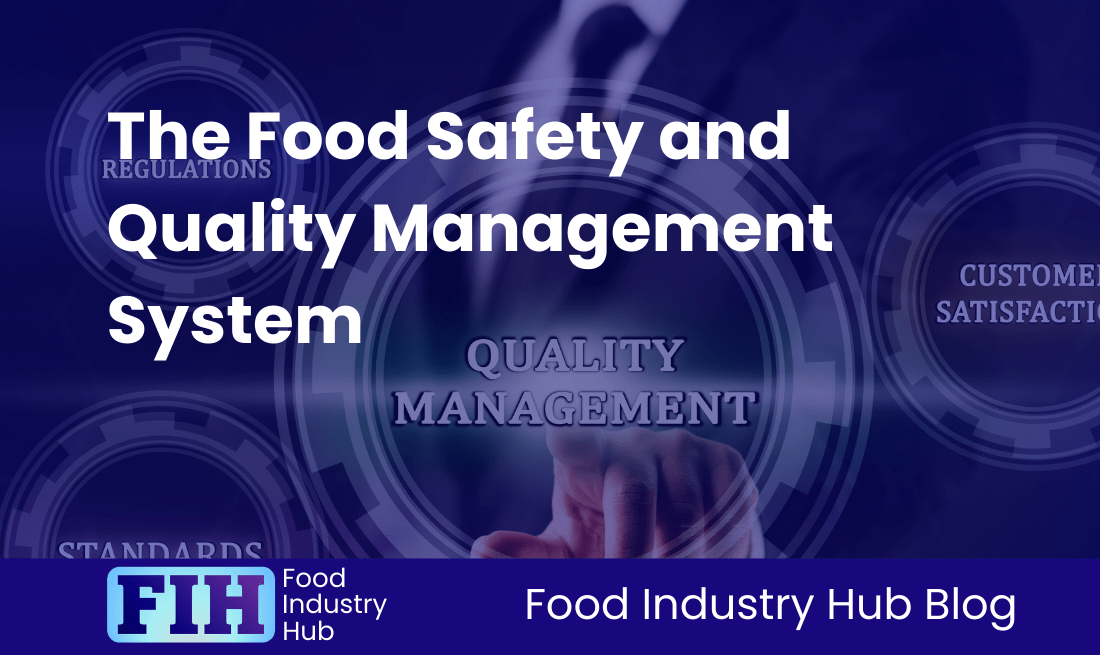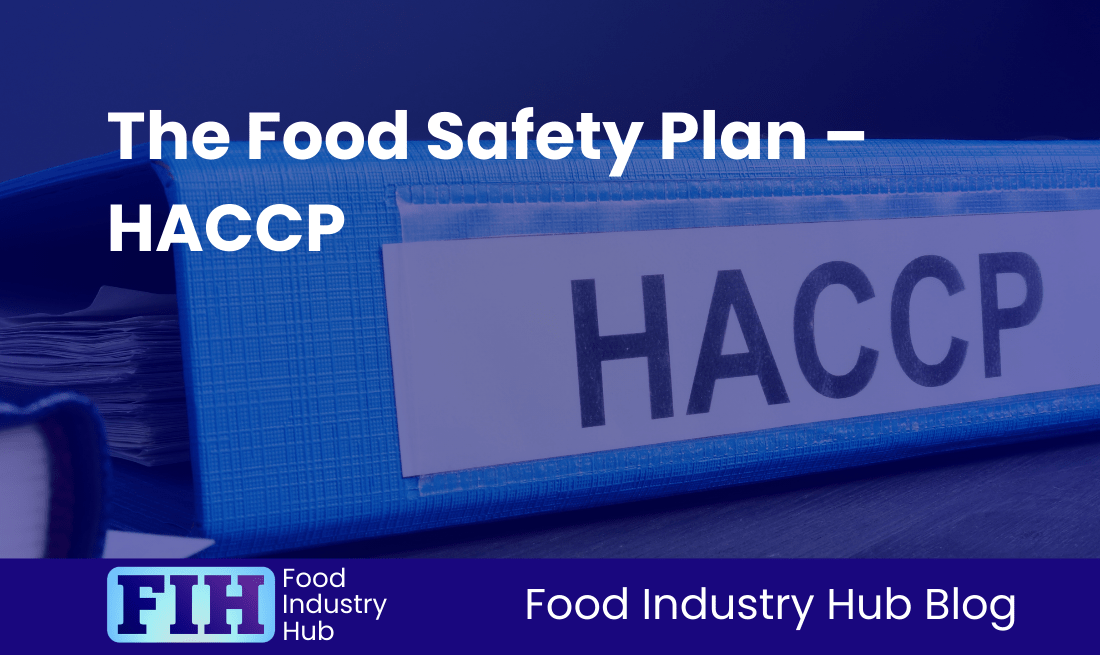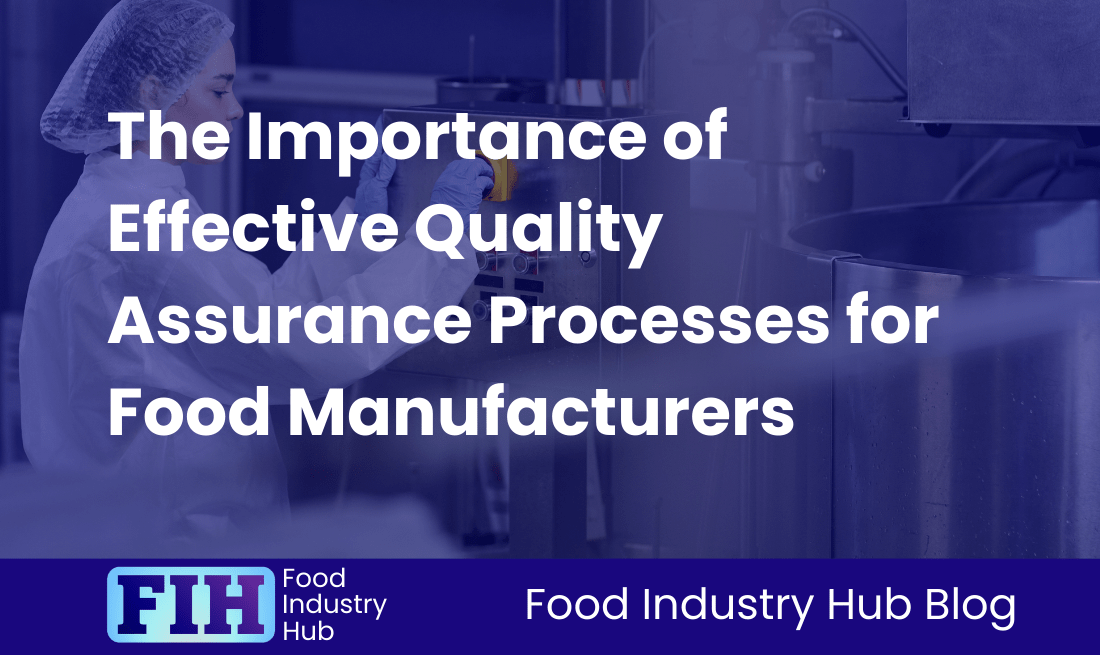Know: Assurance Standards for Food Safety Programs
Contents
Introduction
Key Takeaways
Global Regulatory Frameworks for Food Safety Assurance
Certification Programs as Assurance Benchmarks
Core Technical Components of Assurance Systems
Compliance Verification Mechanisms
Emerging Challenges & Global Harmonization in Food Safety
Workforce Competency Requirements in Food Safety Programs
Conclusion
Introduction
The Importance of Food Safety in Manufacturing
In the landscape of food manufacturing, the safety of products is much more than a mere regulatory obligation – it is a matter of public health. With global health burdens annually impacted by foodborne illnesses, the call for stringent assurance standards in food safety programs is undeniably explicit. These guidelines are instrumental in assuring that food is safe for consumption, maintaining optimal product quality, safeguarding businesses from lawful repercussions, and building trust with consumers.
Understanding Assurance Standards
Assurance standards for food safety programs represent a broad blend of guidelines that incorporate key principles of Hazard Analysis Critical Control Point (HACCP), Good Manufacturing Practices (GMPs), and diverse safety measures. These norms necessitate that businesses discern, manage, and supervise potential hazards from start to finish of the food production chain. These standards ensure uniformity and alignment with wider regulatory frameworks, contributing to health protection, food quality, and authenticity.
Consequences for Food Quality, Legality, and Authenticity
Assurance standards hold noteworthy implications for food quality, legality, and authenticity. They assure that food products fulfil safety regulations and align with quality expectations to augment the consumer experience. Adherence to these standards averts potential legal consequences, which fortifies operations and underpins business reputation. Additionally, meticulous monitoring and documentation processes offer a check and balance system for product legitimacy and safety, thereby buffering against fraudulent practices.
Relevance to Industry Professionals
It is of pertinent importance for professionals in food manufacturing to comprehend and enact these standards for professional growth and to uphold the reputation of their organisations. A deep understanding of HACCP, GMPs, Standard Operating Procedures (SOPs), and Food Safety Management Systems (FSMS) is a requirement. Pertinent training and adherence to these guidelines are fundamental for maintaining proficient operations and guaranteed product integrity.
Key Themes Outlined
In this discourse, we will navigate through three main areas:
- Global Regulatory Frameworks for Food Safety Assurance: We will explore the contribution of entities like Codex Alimentarius and The European Food Safety Authority (EFSA) in setting universal standards in tandem with national regulatory agencies. Furthermore, we will discuss how these frameworks abet global trade while upholding uniform safety standards.
- Certification Programs as Benchmarks for Quality Assurance: We will delve into the significance of certifications like Safe Quality Food (SQF) and their recognition by international bodies such as GFSI, which offer consumers trust and expands market access for food producers.
- Necessary Components of Assurance Systems: We will examine the integral function of elements such as HACCP, SOPs, GMPs, and FSMS in ensuring adherence and safety. This segment will scrutinise how these elements amalgamate into broader safety assurance systems that protect health and enhance corporate integrity.
With a well-rounded grasp and acceptance of these assurance standards, the food manufacturing industry can protect its products more effectively, preserve public health, and advocate a culture of trustworthiness and superior quality on an international scale.
Key Takeaways
In the global food manufacturing industry, navigating the substantial regulatory landscape requires the implementation of region-specific compliance strategies. Regional requirements and frameworks can vastly differ, reflecting the unique priorities and cultural considerations of places such as the U.S., EU, and parts of Asia.
For example, the U.S. is notable for its emphasis on preventive measures, such as the Food Safety Modernisation Act (FSMA). The EU, meanwhile, prioritises harmonisation and traceability among its member states. In Asia, countries often have rigorous, variable regulations influenced by international standards, articulating the need for specialised compliance strategies for organisations operating across these varied markets.
The Role of Modern Standards in Compliance
The FSMA has brought about a significant alteration in terms of how the food industry approaches risk management. This act mandates companies to develop written food safety plans with clearly defined preventive controls, promoting a proactive stance over a purely reactive one. Such an approach insists not only on hazard analysis but also on the establishment of benchmarks to monitor and ensure safety throughout the manufacturing process.
The Evolution of Food Safety Practices: A Look at HACCP
The principles of Hazard Analysis and Critical Control Points (HACCP) have played a fundamental part in the evolution of food safety practices. HACCP allows organisations to systematically identify and address potential hazards through a series of established control points, maintaining safe production standards. The integration of HACCP into leading regulatory models emphasises an enduring commitment to averting food safety incidents, consequently enhancing compliance strategies.
Technological Innovations in Food Safety Assurance
Technological advances have markedly transformed compliance in food safety assurance programmes. The utilisation of tools such as data analytics and digital tracing systems empowers firms to monitor their supply chains in real-time. These innovative solutions facilitate swift identification of contamination sources, promote adherence to regulatory requirements, and ultimately enhance transparency and trust within the food supply chain.
Food Industry Hub Management Systems can significantly boost the effectiveness of your food safety and quality management system, leading to improved confidence and elevated quality assurance throughout your operations.
Global Regulatory Frameworks for Food Safety Assurance
Regulatory frameworks for food safety differ greatly on a global level, impacting methods of ensuring safe food. Such approaches can be placed into two primary categories: preventive measures and reactive strategies. Notably, there has been a heightened focus on preventive, or proactive, strategies in recent years.
Regional Divergence in Regulatory Frameworks
In the United States, the Food Safety Modernization Act (FSMA) encourages a preventive approach. This proactive technique focuses on the identification and mitigation of potential hazards within the food supply chain. Some of the important aspects of this law are mandatory preventive controls and intensified inspection processes to assure compliance with safety standards.
The European Union’s General Food Law (EC No 178/2002) presents a harmonised regulatory framework across its member states. This law prioritises traceability and includes a precautionary rule in order to uphold consistent food safety standards. The European Food Safety Authority (EFSA) holds a key role in evaluating risks and offering scientific guidance to protect public health.
Australia’s Standard 3.2.2A specifies certain food safety measures for food businesses. It demands compliance to safety procedures that are in tune with wider international standards. Moreover, it insists that handling and preparation of food should minimise the risks of contamination.
Preventive vs. Reactive Frameworks
Various preventive frameworks, including those represented by FSMA and the EU’s General Food Law, highlight the importance of anticipating potential hazards and installing controls before any incidents occur. They are devised to reduce foodborne illnesses proactively, showcasing a considerable shift from traditional reactive frameworks that generally react to problems after their emergence [Source: University of Torino].
Regulatory Reciprocity Initiatives
Regulatory reciprocity speaks of the harmonisation of food safety standards across different countries, aiding global trade while ensuring elevated levels of safety. Efforts like the Global Food Safety Initiative (GFSI) endorse benchmarked standards looking to reduce audit duplication and improve the acceptance of international standards. Additionally, the Codex Alimentarius provides a reference framework for establishing food safety standards. Although it’s not legally binding, it serves as a guideline for developing national regulations [Source: SRR Journal].
Performance of Regulatory Frameworks in Global Trade and Food Safety Assurance
Global trade is significantly impacted by these regulatory frameworks, leading to increased efficiency by simplifying the process and reducing costs for food businesses. Harmonised standards not only foster consumer trust but also promote cooperation between nations. Yet, accomplishing total harmonisation is a complex task due to the differing national contexts and the changing demands of regulation [Source: Veeva Systems].
Key Terminologies in Global Regulatory Frameworks
Definition and Significance of Key Regulations
Food Safety Modernization Act (FSMA): Implemented in 2011, FSMA accelerates the trend towards proactive food safety regulation in the US. It requires food facilities to devise plans that address potential risks in advance. This method emphasises continual evaluation and improvement to prevent contamination.
General Food Law (EC No 178/2002): This EU regulation fashions a unified framework for food safety that compels businesses to apply Hazard Analysis Critical Control Points (HACCP) and maintain traceability throughout the food supply chain. It enhances efficiency in international trade by assuring consistent standards across member nations.
Australia’s Standard 3.2.2A: Constituting a part of Australia’s Food Standards Code, this standard underscores safe food handling and production practices. It instructs food businesses to manage hazards systematically through safety plans that align with HACCP principles.
These regulations indicate the necessity of proactive management of food safety risks to protect consumers and encourage international trade.
Certification Programs as Assurance Benchmarks
Prominent certification programs, namely SQF (Safe Quality Food), FSSC 22000 (Food Safety System Certification), and BRCGS (Brand Reputation through Compliance Global Standard), serve as core benchmarks for assurance in the realm of food safety. Recognised by the Global Food Safety Initiative (GFSI), these certifications help organisations fulfil rigorous safety and quality norms.
Overview of SQF, FSSC 22000, and BRCGS Global Standard
SQF commands recognition in the U.S and globally, esteeming steadfast food safety risk management throughout various supply chain factions. This program is applicable to different business forms, offering tailored execution according to individual operational requirements.
The FSSC 22000 certification, based on ISO 22000, is notable for its compatibility with extensive management systems. Particularly beneficial for organisations conducting international operations, this certification nevertheless necessitates meticulous implementation and auditing procedures for effective demonstration of compliance.
Originally established by the British Retail Consortium, the BRCGS (Brand Reputation through Compliance Global Standard) enhances food safety and quality management for organisations worldwide. Characterised by its detail-oriented and process-centric guidelines, this standard plays a significant role for retail suppliers [Source: GFSI].
Notably, these certification programs function as benchmarks for assurance by creating a defined framework for compliance. This helps strengthen consumer trust and bolster brand credibility in the foods marketplace.
Role in Enhancing Credibility and Complying with GFSI Standards
Aligning with GFSI standards not only boosts credibility amongst consumers but significantly simplifies procedures by eliminating the necessity for multiple audits across varying standards. This allows companies to navigate international trade more efficiently.
Key Terminologies in Certification Programs
Understanding GFSI Benchmarking
GFSI benchmarking seeks to synchronise global food safety standards by evaluating food safety management systems against specific criteria consistent with international guidelines. This process plays a significant role in instilling consumer confidence and facilitating business operations by minimising redundancies in audit procedures.
FDA Voluntary Qualified Importer Program (VQIP)
Not a certification program in the same sense as SQF or FSSC 22000, the FDA’s Voluntary Qualified Importer Program (VQIP) aims to assure the safety standards of imported foods. Complying with specific safety criteria rewards importers with a facilitated entry of food directly into the U.S, thus reinforcing the importance of diligent compliance mechanisms in the broader food safety landscape.
Sign-up for the Food Industry Hub Mail Service
We regularly produce new content for food industry professionals, and the Food Industry Hub Mail Service is the best way to stay up to date with the latest additions.
Signup today to be added to the Food Industry Hub mailing list.
Core Technical Components of Assurance Systems
The Hazard Analysis and Critical Control Points (HACCP) methodology serves as a key element in modern food safety management. Originating in the 1960s for NASA’s space food programme, HACCP has matured, incorporating preventive measures against biological, chemical, allergenic, and physical hazards. The evolution of HACCP has led to its widespread adoption across the globe; research points to substantial declines in foodborne illnesses wherever this system has been implemented. For instance, the U.S. reported a 20% reduction in foodborne illnesses within the first seven years of HACCP system adoption.
Evolution of HACCP Principles and Applications
The seven main principles of HACCP include identifying potential hazards; figuring out critical control points (CCPs); confirming critical limits; setting up monitoring and verification procedures; creating a system for corrective actions; establishing verification procedures; and maintaining records.
Good Manufacturing Practices (GMPs)
Good Manufacturing Practices (GMPs) set out the foundational conditions necessary for HACCP implementation. Implementing standards that support food safety, GMPs cover maintaining cleanliness of facilities, enforcing sanitation measures, and ensuring appropriate equipment maintenance, as well as monitoring hygiene and training for all personnel involved in food handling. GMPs are designed to reduce potential contamination and set up a safety layer in preparation for applying HACCP procedures. Successful GMP implementation is key to making sure that products are safe and of good quality.
Digital Traceability Technologies
Digital traceability technologies have begun transforming compliance and safety audits with real-time product monitoring throughout the supply chain. These technologies offer immediate tracking, detailed data gathering, and improved transparency in food handling processes, significantly reducing foodborne illness risks and making compliance audits more efficient.
Key Terminologies in Core Technical Components
Operational PRPs (Pre-Requisite Programs)
Operational PRPs, including Good Manufacturing Practices (GMPs), Good Hygiene Practices (GHPs), and Good Agricultural Practices (GAPs), form the bedrock of effective food safety initiatives. Pre-requisite programmes form a context for environmental and operational risk management, whithin which HACCP can exist. By setting up conditions that minimise contamination risks and providing protocols for sanitation, PRPs facilitate safe operations. Implementation of PRPs paves the way for robust HACCP strategies, contributing to a more resilient food safety management system overall.
Importance of Establishing Critical Limits
Critical Limits are established parameters set at each Critical Control Point that maintain control over identified hazards. Scientifically-based criteria define safe thresholds that prevent foodborne illnesses. Meticulous establishment of these limits is necessary for food safety maintenance, and prompt corrective actions are essential when deviations occur. Ensuring food safety translates directly to protecting public health and keeping food safe for consumption.
Understanding Environmental Monitoring Programs (EMPs)
Environmental Monitoring Programs (EMPs) take a proactive approach in identifying and managing risks within food production environments. Regular testing and sampling to detect contaminants such as pathogens ensure the environment doesn’t compromise food safety. Incorporating EMPs into food safety guidelines allows manufacturers to anticipate and deal with potential hazards, ultimately improving food safety outcomes.
These components of HACCP principles, GMPs, digital traceability technologies, operational PRPs, critical limits, and EMPs collectively make up strong contributors to food safety assurance systems. These elements work in concert to meet regulatory standards and the industry’s commitment to producing safe, high-quality food products.
Compliance Verification Mechanisms
Enforcing the foundations of food safety schemes pivots on robust compliance verification mechanisms. These systems assure adherence to regulatory standards and facilitate consistent improvement via established auditing and corrective action methods.
Three-Tier Auditing Systems
A three-tier auditing system is made up of several layers of evaluations. These comprise first-party audits performed by the organisation itself, second-party audits conducted by clients or partners, and thorough third-party audits executed by accredited entities. This layered scheme is instrumental for securing compliance, as it underscores accountability and thoroughness across the organisation. Different tiers focus on assorted aspects of food safety, thus ensuring comprehensive oversight which is key to effective compliance management. [Source: Food Safety Magazine].
Regulatory Programme Standards (RPS)
Regulatory Programme Standards serve as a system of rules that food manufacturing organisations must comply with to achieve systemic adherence. Often, these standards are rooted in trusted international norms and are designed to pre-emptively mitigate food safety hazards. For instance, engagement with practices derived from the Hazard Analysis and Critical Control Points (HACCP) framework is key for identifying, evaluating, and controlling food safety risks across the production process. RPS informs companies regarding effective food safety practices, resulting in a structured and consistent approach to food safety challenges and compliance validation. [Source: Food Standards Australia New Zealand].
Corrective Action Protocols and Continuous Improvement
In the wake of compliance failures, organisations need to employ corrective action protocols effectively to redress discrepancies. Typically, these protocols encompass issue identification, root cause analysis, and follow-up with appropriate corrective measures. Furthermore, verification processes ensure the efficacy of corrective actions, contributing thus to a ceaseless cycle of improvement. The implementation of these strategies backs a culture of continuous compliance and improvement, enabling food manufacturers to retain and uphold high safety and quality standards.
Key Terminologies in Compliance Verification
Grasping specific terminologies central to compliance verification is indispensable for addressing non-compliance dilemmas efficiently.
Corrective Action Request (CAR)
A Corrective Action Request (CAR) is an official document detailing non-compliance issues highlighted through audits or inspections. It also covers the necessary remedial steps along with the stipulated timeline for resolution. CARs demonstrate their sheer importance in preserving compliance, providing a robust process for dealing with identified challenges to maintain food safety standards.
Supplier Corrective Action Request (SCAR)
In a similar vein, a Supplier Corrective Action Request (SCAR) is issued when non-compliance problems surface, related to a supplier’s products or performance. This document imparts accountability on the suppliers and ensures they take fitting actions to resolve the inconsistencies. SCARs re-emphasise supplier responsibility in the food safety chain and underscores the interconnected nature of compliance across all links in the supply chain.
Mutual Reliance Agreements
Mutual Reliance Agreements also act as vital contributors in synchronising compliance across various regulatory regions. By mutually acknowledging each other’s regulatory processes and standards, participating jurisdictions can mitigate duplication of efforts, paving the way for improved overall compliance efficiency. Such agreements simplify trade and uphold food safety practices globally, an indispensable factor for maintaining consumer trust and product quality.
With a clear understanding of these compliance verification mechanisms and terminologies, food manufacturing professionals are enabled to navigate the intricacies of regulatory compliance, thus enhancing the safety and quality of their products.
Emerging Challenges & Global Harmonisation in Food Safety
Harmonisation across different jurisdictions has proven to be challenging for regulators and food business operators. This is largely due to incompatibilities between regional laws and regulations. These incompatibilities can be relatively simple (for example, different food allergens recognised in different jurisdictions), but can also be relatively complex (for example, regional regulations upholding incompatible compositional standards for food items such as bread and flour, partially and entirely dehydrated milk products, chocolate products, and products with protected designated origins).
The employment of recycled plastics in food packaging is on the rise. This brings forth its own set of challenges that need consideration to guarantee food safety. Regulations, particularly from the U.S. and the EU, pertaining to plastic recycling mandate that recycled materials must not risk food safety via the introduction of harmful contaminants. The U.S law demands compliance with the Food, Drug, and Cosmetic Act, while the EU’s regulation (EC) 1935/2004, which supervises the use of materials intended to touch food, necessitates strict adherence [Source: Food Safety Magazine]. Regulatory fragmentation across global markets inserts complexity into compliance and can pose obstacles to international trade, kindling a necessity for a unified approach.
Harmonising allergen threshold is equally significant in global food safety debates. Variations in allergen labelling and threshold limits across nations can pose considerable risks for consumers with allergies. Hence, unifying these thresholds is essential, not only for safeguarding consumers but also for facilitating seamless international trade because inconsistent regulations can lead to misunderstandings and potential hazards [Source: Food Poisoning News].
Performing vulnerability assessments act as a strategic, proactive approach to spot and mitigate risks within the food supply chain. These assessments reveal potential weak spots, such as those that could become targets for food fraud or contamination, enabling manufacturers to establish effective risk management measures that comply with international safety standards.
Key Terminologies in Emerging Challenges & Global Harmonisation
Food fraud is marked by dishonest practices such as economic gain driving misrepresentation of food products. Thorough approaches are necessary for mitigation strategies, which include heightening supply chain transparency, rigid authentication processes, and cooperation among regulatory bodies. These strategies should incorporate advanced detection technologies and regular audits to maintain the integrity of food products [Source: IJSRMS].
The BRCGS, or Brand Reputation through Compliance Global Standards, lay out strict requirements for food manufacturers, agents, and brokers within the food supply chain. Ensuring compliance with BRCGS standards highlights the importance of effective risk assessments, comprehensive documentation of processes, and regular audits. Through these standards, every entity within the supply chain ends up abiding by food safety and quality standards. This compliance framework eventually bolsters consumer protection and the integrity of the industry [Source: Food Poisoning News].
Achieving harmonisation of food safety standards at a global level is a significant requirement to affirm consumer protection and enable trade. Collaborations spearheaded by organizations like the Codex Alimentarius Commission are essential for formulating and propagating international food safety guidelines. Such initiatives intend to balance the differing regulatory frameworks while promoting international cooperation, thus strengthening the efficiency of food safety programs globally.
Workforce Competency Requirements in Food Safety Programmes
The assurance standards for food safety demand a competent and well-trained workforce, and this is achieved through various methods such as tiered training systems, behavioural analytics, and microcredentialing.
Importance of Tiered Training Systems
Tiered training systems play an essential role in cultivating a skillful workforce in food safety. These systems provide an organised learning pathway tailored to various roles within the organisation, resulting in effective skill development at each level. Employees entering the industry concentrate on core food safety practices, for instance, hygiene and basic HACCP (Hazard Analysis Critical Control Point) principles, whereas senior personnel undergo sophisticated training that includes aspects such as risk management and compliance with regulations. Customised training for different job roles enhances competency and promotes a culture of continuous elevation in food safety practices [Source: Food Safety Magazine].
Role of Behavioural Analytics in Improving Food Safety Practices
Behavioural analytics significantly reinforce food safety standards by discerning patterns in employee behaviour and consistency with food safety protocols. Through analysing these behaviours, organisations can pinpoint areas in need of enhanced training or possibly failing compliance. This insight allows for targeted interventions to upgrade safety practices. For instance, predictive measures can be adopted to address high-risk behaviours before they escalate to safety breaches. This approach, informed by data, not only engages employees in compliance efforts but also instills a culture of accountability.
Overview of Microcredentialing
Microcredentialing provides a flexible model for industry professionals to advance their skills in specific areas essential to food safety. These mini-certifications focus on specialist competencies, bypassing the wide scope of degree programmes, thus facilitating rapid skill acquisition in line with current industry standards. An individual may secure a microcredential in food microbiology or HACCP protocols, for instance, exhibiting their expertise without the substantial time commitment of a full degree programme. This approach supports lifelong learning and enables organisations to maintain a proficient workforce that can adeptly navigate the ever-evolving regulatory environment.
Key Terminologies in Workforce Competency Requirements
The effectiveness of a food safety programme can largely be attributed to certain key roles within the organisation.
Food Safety Supervisor (FSS) Responsibilities
A Food Safety Supervisor (FSS) carries significant responsibility in ensuring alignment with food safety regulations. Their primary roles encompass overseeing food production processes, carrying out staff training, and conducting regular checks to confirm adherence to safety protocols. They are likewise responsible for managing documentation and reacting to customer grievances, ensuring that all practices correspond with local and global regulatory standards.
Preventive Controls Qualified Individual (PCQI) Requirements
A Preventive Controls Qualified Individual (PCQI) plays an integral role in efficient management of food safety programmes under the Food Safety Modernisation Act (FSMA). PCQIs are tasked with developing and implementing risk-based preventive controls aimed at minimising hazards in food production. They must possess comprehensive knowledge of food safety practices and regulatory requirements to effectively safeguard consumer health and maintain compliance with safety standards. [Source: BSI]
Building an Organisational Food Safety Culture
Establishing a robust food safety culture within an organisation is key to maintaining compliance and elevating the quality of standards. This culture promotes a shared responsibility among all employees to place food safety at the forefront of their daily operations. Leadership engagement with food safety, continuous training opportunities, and open communication about safety practices are vital components. A strong food safety culture not only boosts compliance rates but also reduces the risk of foodborne diseases and improves overall organisational performance.
By incorporating these elements—tiered training systems, behavioural analytics, microcredentialing, and understanding key roles such as FSS and PCQI—organisations can markedly reinforce their food safety programmes and enhance overall compliance and quality.
Conclusion
Assuring the safety of food is central in an integrated global marketplace, where widespread regulatory frameworks serve as the backbone for the preservation of public health. This digression emphasises on the weightage of universal regulatory frameworks, certification schemes, essential technical elements within assurance systems, mechanisms of compliance verification, surfacing challenges, and the necessity of workforce competency criteria.
Universal Regulatory Structures
Universal regulatory structures play a crucial part in contracting food safety specifications worldwide. Institutions, like Codex Alimentarius Commission, authenticate globally acknowledged norms that ease trade and affirm consumer preservation [Source: World Health Organisation]. These structures assist in mitigating the risks associated with foodborne diseases while securing consumer confidence by establishing uniform safety benchmarks across diverse markets.
Function of Certification Programs
Certification programs like ISO 22000, FSSC 22000, and BRCGS function as essential benchmarks for industry practices. They form abidance to rigorous safety norms, minimising contamination threats, and enhancing market accessibility. These validations not only improve compliance but also encourage a culture of safety and continual enhancement vital for maintaining consumer trust in food goods.
Essential Technical Components in Assurance Systems
Elementary technical elements, including risk administration, danger regulation, process enhancement, and perpetual improvement, are crucial to effective assurance mechanisms. Standards like Hazard Analysis and Critical Control Points (HACCP) and ISO 22000 incorporate these components, confirming a methodical approach to food security management. Implementing these pre-emptive components is essential for companies desiring to manage risks successfully throughout the food supply chain.
Effectiveness of Compliance Verification Mechanisms
Effective compliance verification mechanisms are required to mainatian industry norms. Regular audits and assessments ascertain that businesses adhere to evolving laws, thus reducing the probability of foodborne disease outbreaks and legal implications. These mechanisms encourage transparency and accountability, thereby maintaining consumer trust in the food industry.
Emerging Challenges and Global Harmonisation
Emerging challenges, for example, climate change, innovation, and shifting consumer anticipations underline the requirement for a stronger global harmonisation. Harmonised laws facilitate the avoidance of unnecessary trade obstacles, advocating for fair practices in food trade. Enhancing international collaboration and cultivating capacities in low- and middle-income nations are essential components of developing global food safety initiatives.
Workforce Competency Requirements
The competence of the workforce is essential for meeting high food safety specifications. Continuous learning and development programmes are needed to provide personnel with the vital skills to establish and maintain effective food safety management systems. Skilled individuals are better situated to manage risks, ensure compliance with regulations, and innovate within the boundaries of safety standards, thereby strengthening the global food safety assurance landscape.
Finally, proficient global regulatory frameworks, credible certification programs, all-encompassing assurance systems, meticulous compliance verification mechanisms, and a well-educated staff are essential to maintaining high food safety standards. Responding to emerging queries and bolstering global reconciliation remain essential in ensuring that the food industry suits evolving consumer needs whilst preserving public health.
About The Food Industry Hub Knowledge Centre
The Food Industry Hub knowledge centre delivers informative content on a variety of topics pertinent to the food manufacturing industry.
You can return to all topics by clicking here.
From The Food Industry Hub Signposting Service
Additional resources from The Food Industry Hub Signposting Service.
From The Food Industry Hub Blog
Expanding on this topic with related content from our blog.

